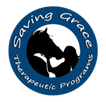|
When a company is successful you typically see a unified group of people working towards the same goals. Employees know the goals, they have buy-in to those goals, and they are often team players. Being a team player is hugely important when working in most any business. Well, what does it mean to be a team player?
Team players are those individuals that will help others, pick up the slack, take pride in their job, care about how their work reflects on them, and want to see the workplace succeed. They tend to be on time, work hard, and rarely call out unless they must. Often they don't seek out recognition, but they do appreciate hearing it and will be secretly hurt if someone else gets all the credit. They are not "Freddy Freeloader" who pitches in his two cents, contributes as little as possible, and then wants all the credit. Knowing who your team players are in any business is crucial. However, you can encourage other employees to be team players as well. Some of that may come about when you truly understand who your team players are and give them accolades or recognition when they are doing a great job. Sometimes you cannot just go off of appearances or results but have to dig into your culture and communicate with your team to really understand who is doing the bulk of the work. Sometimes a manager or supervisor can appear to be putting in the time, but in truth they are utilizing their team's work to elevate themselves. Occasionally this happens in equal positions as well where one or a few employees are carrying the majority of the load. If you want to lose good employees, you can ignore their effort and praise the wrong people. If you want to retain good employees and encourage others to emulate the behavior, you must carefully assess the facts and correctly handle the situation. Employees need to be shown the benefits of being a team player, what the consequences will be if they are not, and how to go about embodying that level of character. This can be done in house, through training and communication with the team, but a great way of illustrating teamwork, and how it is crucial, is to do team building activities that take you outside the workplace. Much like the teen who listens to anyone but Mom/Dad about life lessons, sometimes staff need a similar approach. The "boss" can say it all day, but seeing it in action, and hearing it outside the workplace, can make it stick. Think about Equine Assisted Activities as a way to enhance the team you have and directly show them the benefits of teamwork. Horses exist in team units called herds, and the members of that team are crucial to their survival. Working with horses is an experiential learning experience and a great way to see the benefit of working together. If we are too overbearing, the horse may fear us and we will not get the results we want. If we are not confident, the horse will take over and rule the partnership. To learn more about how Equine Assisted Activities can help you business, contact us today!
0 Comments
 That is a loaded question isn't it? Do you know the answer? Are you responsible for that answer? If you are a business owner, leader, manager, etc. then YES, you are responsible for that answer because YOU are the one allowing the culture. If your team culture is positive, friendly, and has open communication then GREAT! If not, perhaps its time to take a look at what is really going on. One of the biggest problems in the workforce today relates to the culture of the business or team. The culture of your business is the environment in which your team lives... like horses in a pasture. And according to a recent Project Aristotle study by Google, it is PSYCHOLOGICAL SAFETY that is the single most important element of building effective teams. What does that mean? When your team works together do you hear things like: "This is not correct…”, “What do you think?”, “I made a mistake…”, "I need help with this", “I disagree…” If you aren’t hearing those phrases, that might be a problem. Unfortunately, the safety to speak up, share a concern, or voice an idea is not always encouraged in the workplace. Especially when it pertains to issues or challenges. According to Project Aristotle, psychological safety is a huge factor in team effectiveness. "Psychological safety refers to an individual’s perception of the consequences of taking an interpersonal risk or a belief that a team is safe for risk taking in the face of being seen as ignorant, incompetent, negative, or disruptive. In a team with high psychological safety, teammates feel safe to take risks around their team members. They feel confident that no one on the team will embarrass or punish anyone else for admitting a mistake, asking a question, or offering a new idea." (Source: re:Work) As a leader, you must be intentional in creating a culture of open communication and psychological safety for your employees. Model it: Lead by example! Share input, admit mistakes, give opinions, and provide feedback in a constructive way. Solicit it: Ask others to share their feedback, admit mistakes, give opinions, voice concerns, etc. Protect it: Don't let others discourage the input or ostracize the employee providing the feedback or sharing an issue. You must never let the person feel attacked by you or your team. Reinforce it: Reward the team member with positive feedback for the concern, opinion, admission, etc. Consider thanking them in front of the team, allowing them a perk, or even create your own system of reward for speaking up with legitimate concerns/ideas. Team-Building with Horses encourages this type of open communication in a fun and engaging way that can help break down barriers and lighten moods between team mates. Or, it can help you determine those who are not willing to be a team player and may be dragging your team down. You may be able to help them come to a better understanding of this concept, or it may be time for them to move on. Whatever the dynamic, the culture you encourage speaks volumes to how your team will succeed... or fail. Learn more about Team-Building with Horses by visiting our program information HERE.  Do you know why team building is an important growth opportunity for businesses everywhere? Team-building exercises build a stronger unit of employees and offer many benefits for businesses. The structure typically allows employees to learn from others on their team, and helps them develop new skills. It also proves to your employees that you care. In fact, Sixty-nine percent of employees say that they would work harder if they felt appreciated (Source: Smarp.) Great leaders always invest in their employees' professional growth. Activities are primarily designed to help improve communication for the team. Communication is key to the success of any relationship, and that definitely includes business. In recent surveys, poor communication caused increased stress levels (52 percent of respondents), delays or failures to complete projects (44 percent), low company morale (31 percent), missed performance goals (25 percent), and lost sales (18 percent), according to a survey of U.S.-based executives. (Source: The Economist Intelligence Unit). Eighty-six percent of corporate executives, employees, and educators say that ineffective communication is a key reason for workplace failures. (Source: Salesforce) Other areas that are positively affected by team-building programs are increased employee motivation, collaboration and improved trust and respect among employees. There are many different and successful options for team-building in the world today, but few have the opportunity to work with a living breathing being that can give your team immediate biofeedback. This is why horses are a unique approach to the team-building world. Horses, because they naturally exist in groups called herds, pick up on body language, energy, emotion, stress, and more. In this way, they are able to provide the team opportunities to reflect on their activity goals, communication, strategies, and improve performance. This encourages constructive change within the group and can foster better relationships within the workplace. Better relationships create a culture of trust and respect, and help prevent errors or accidents. Give Team-Building with Horses a try! Click HERE to learn more! |
AuthorJanna Griggs is the Executive Director of Saving Grace Farm, a non-profit organization in Salisbury, NC. Janna has a BA in Therapeutic Horsemanship and Business Administration from St. Andrew's University in NC. She has been working with horses for almost 30 years and has been a leader in the business world for more than 12 years. She has worked with business coaches and consulting firms throughout her career. She and her team offer The Equine Assisted Method (T.E.A.M.) Workshops for Businesses. Archives
December 2023
Categories |
SEE WHAT'S HAPPENING ! |
We ARE in need of donations for vet expenses, rider sponsorship, and horse feed!Click the Seal for Our GuideStar Profile, including financials, strategies, and progress indicators.
|
©2019 Saving Grace Farm, A 501(c)3 Non-profit organization. All rights reserved.

 RSS Feed
RSS Feed